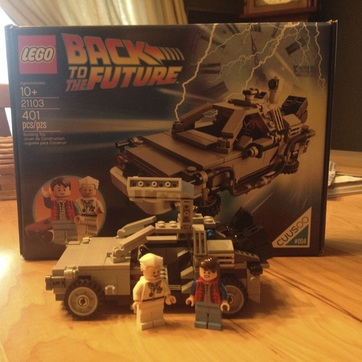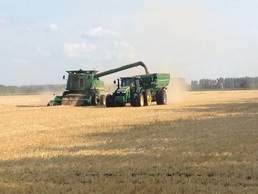
| This pic is barley harvest. Look for pics like this to be accessible on your food, with a link to our farm website or facebook page. Consumers want to know where their food comes from, and farmers want them to know. We get little to no credit for the great food we produce, and frankly, we'd like a little recognition. My farm on a bottle of Budweiser, with an explanation that the barley was grown in Stephen, MN, and another pic and explanation that the hops came from somewhere in Washington. Or my farm on a can of navy beans. Farmers are so proud of their hard work, and a little recognition from consumers would be a nice pat on the back. Consumers want to know, farmers want to brag, and everyone supports each other. |

 RSS Feed
RSS Feed